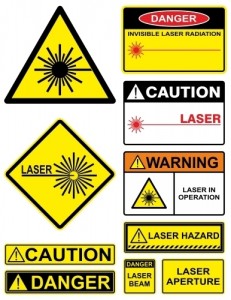
I’m in an electrotherapy mood this week, our last blog looked at ‘electrical stimulation for OA knee‘ and now we will turn our attention to the shoulder.
Let’s look at a recent Cochrane review ‘Electrotherapy for adhesive capsulitis (frozen shoulder), this is a sister review of one we looked at a few weeks ago ‘Manual therapy and exercise for adhesive capsulitis‘.
As we know adhesive capsulitis (frozen shoulder) is a common cause of shoulder pain and stiffness that can last up to two to three years before going away, and in the early stages it can be very painful.
Electrotherapy aims to reduce pain and improve function via an increase in energy (electrical, sound, light, thermal) into the body. Examples include therapeutic ultrasound, low-level laser therapy (LLLT), interferential current, transcutaneous electrical nerve stimulation (TENS), and pulsed electromagnetic field therapy (PEMF).
Here’s what they did
The authors of this Cochrane review searched electronic databases for RCTS and controlled clinical trials (CCTs) for adults with adhesive capsulitis that compared any electrotherapy modality to placebo, no treatment, a different electrotherapy modality, or any other intervention.
Their main outcomes of interest were participant-reported pain relief of 30% or greater, overall pain, function, global assessment of treatment success, active shoulder abduction, quality of life, and the number of participants experiencing any adverse event.
Here’s what they found
- They found 19 trials including 1249 participants.
- Participants in the trials – 61% were women, the average age was 55 years, and the average duration of the condition was 5.5 months.
- Only two electrotherapy modalities (low-level laser therapy (LLLT) and pulsed electromagnetic field therapy (PEMF)) have been compared to placebo.
- The average duration of delivery of electrotherapy interventions was four weeks.
- No trial has compared an electrotherapy modality plus manual therapy and exercise to manual therapy and exercise alone.
People who received LLLT and exercise compared to people who had placebo plus exercise:
- Had less pain – 19 points less (ranging from 15 to 23 points less) at the fourth week of treatment (19% absolute improvement, ranging from 15% to 23% improvement).
- Had less function impairment – 12 points less (ranging from 6 to 18 points less) at the fourth week of treatment (12% absolute improvement, ranging from 6% to 18% improvement).
- Active shoulder abduction – 9 degrees more (ranging from 2 to 16 degrees more) at the fourth week of treatment (5% absolute improvement, ranging from 1% to 9% improvement).

Low level laser therapy may be effective for adhesive capsulitis.
The authors concluded
Based upon low quality evidence from one trial, Low Level Laser Theray (LLLT) for six days may be more effective than placebo in terms of global treatment success at six days.
Based upon moderate quality evidence from one trial, LLLT plus exercise for eight weeks may be more effective than exercise alone in terms of pain up to four weeks, and function up to four months.
It is unclear whether pulsed electromagnetic field therapy (PEMF) is more or less effective than placebo, or whether other electrotherapy modalities are an effective adjunct to exercise.
The Musculoskeletal Elf’s view

As we know adhesive capsulitis can last for several years and trials examing the effectiveness of interventions should take this into account. The authors of this review selected the following time points to examine effects of electrotherpy modalities; up to three weeks, longer than three and up to six weeks, longer than six weeks and up to six months; and longer than six months. However most of the outcomes in the trials included in this review only assessed outcomes during treatment or in the weeks following treatment cessation. Therefore sensibly the authors recommend that assessment of longer-term outcomes, for example up to six to 12 months, would be worthwhile in future trials.
What do you think?
- Do you use Low Level Laser Therapy in your practice?
- Do you use it for adhesive capsulitis – frozen shoulder?
- In your experience how long does frozen shoulder remain symptomatic?
Send us your views on this blog and become part of the ever expanding Musculoskeletal Elf community. Post your comment below, or get in touch via social media (Facebook, Twitter, LinkedIn, Google+).
Links
- Page MJ, Green S, Kramer S, Johnston RV, McBain B, Buchbinder R. Electrotherapy modalities for adhesive capsulitis (frozen shoulder). Cochrane Database of Systematic Reviews 2014, Issue 10. Art. No.: CD011324. DOI: 10.1002/14651858.CD011324.

Electrotherapy for frozen shoulders http://t.co/1lIKSzfGpc
Electrotherapy for frozen shoulders http://t.co/oWI8XAdiLT @theCSP @physioMACP
Should you use #laser for #frozenshoulder new blog http://t.co/oWI8XAdiLT @Physiowizz @PTHSN @PTThinkTank
Is #electrotherapy effective for #frozenshoulder http://t.co/oWI8XAdiLT @Arthritis_care @ArthritisCareSC
Have #frozenshoulder is #electrotherpy helpful? new blog http://t.co/aIDtk0mVhp @Arthritis_ARC @arthritisFdn
#Cochrane review #Electrotherapy for #frozenshoulders http://t.co/oWI8XAdiLT @UKCochraneCentr @CochraneMSK @PhysioNZ
#Cochrane review #Electrotherapy for #frozenshoulders http://t.co/aIDtk0mVhp @UKCochraneCentr @CochraneMSK @PhysioNZ #EBP
@MSK_Elf says: Have #frozenshoulder is #electrotherpy helpful? new blog http://t.co/BpQyA2Qe29